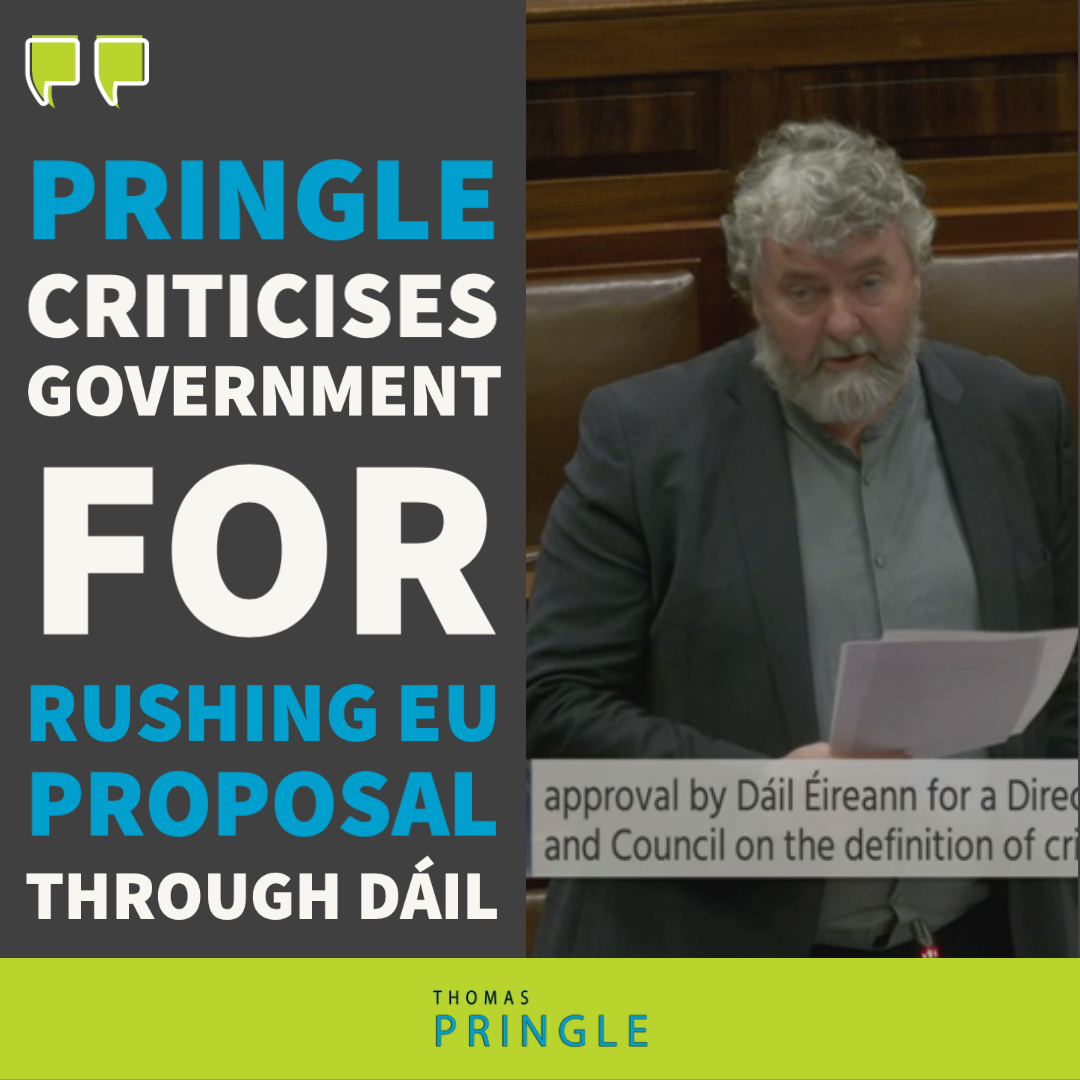- Pringle: We need a policy that recognises the importance of inshore fishing
- Pringle: Disabled people and carers face crisis of State neglect
- Pringle: Failed FF/FG housing policies forcing people to put their lives on hold
- Pringle welcomes Donegal council motion on Occupied Territories Bill: ‘We cannot stand by in the face of genocide’
Pringle criticises Government for rushing EU proposal through Dáil
- Updated: 2nd March 2023

Independent TD for Donegal, Thomas Pringle, has criticised Government for rushing an EU proposal addressing violations of EU sanctions while the text was still being discussed.
Addressing the Dáil on Tuesday, Deputy Pringle said: “The Attorney General found that there was no constitutional impediment to Ireland opting into the directive, but noted that a few areas would need to be considered from transposition perspective including the provision under Article 3, which criminalises the breach of a travel ban.
“The text of this directive is still being negotiated, with most recent meeting between officials taking place only yesterday, but yet we’re putting through the adoption of it today, which I think is disappointing,” he said.
The deputy was speaking on the proposal for a directive of the European Parliament and of the council on the definition of criminal offenses and penalties for the violation of EU restrictive measures, or sanctions.
Deputy Pringle said: “I absolutely condemn the horrendous acts of Russia towards Ukraine and my thoughts go out to all those suffering from the violence of the past year. I also understand the implementation of a series of sanctions against Russia to demonstrate our condemnation. All the EU countries have been in favour of these restricted measures and so I’d like to know the reasoning for adding the violation to EU restricted measures on the list of EU crimes. It seems very extreme to me, when every country is actually in favour of this and has been implementing sanctions already.
“And I would personally question the use of sanctions and their effectiveness, but there has been no doubt that all European countries have been supportive of them by choice,” he said, calling the proposal, “unnecessary, extreme and controlling.
“This proposal has the potential to foster mistrust and resentment between the European Union and member states who have happily supported sanctions up until now. Criminalisation is not the answer, I believe, and it is for this reason that I am very wary of this motion and do not support it,” he said.
Deputy Pringle also pointed out the contrast in the EU response to Israel’s treatment of Palestine and the Palestinian people.
The deputy said: “Contrast how the European Union is reacting in relation to the wrong, absolutely wrong, invasion of Ukraine, but when you see how the European Union treats Israel and the destruction of Palestinians and Palestinian property and villages, and Palestinian lives, even in the last week, and the reaction to Saudi Arabia and Yemen as well, it really is contrasting.”
He said: “Maybe they should put a clear list up so that we know when one government kills people it’s okay and when another government kills people it’s wrong – that seems to be what’s going on here.”
Deputy Pringle concluded: “Instead of focusing on unnecessary criminalisation, focus in Europe should be on facilitating negotiations and on a ceasefire as well. It should be on promoting peace, which is the very first of the European Union’s listed aims and values.”



